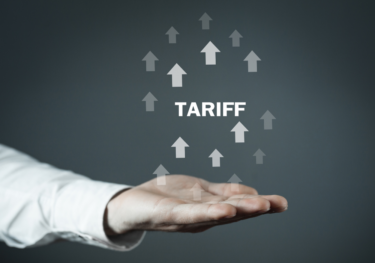Blog | 15 Feb 2023
Our new Industry Climate Service

Abby Samp
Director, Industry Subscription Services

Changing weather patterns and frequent natural disasters have increased environmental concerns. As a result, mitigation, adaptation, and regulatory reporting have become a major priority for policymakers and business leaders. I am thrilled to announce we will be introducing our Industry Climate Service on 23 February to help clients quantify the impacts of climate change and associated mitigation policies on output and energy use trends across more than 100 sectors.
How we can help:
- Identify big picture opportunities and risks. Translate and quantify how climate change and associated mitigation policies affect output and sales trends across more than 100 sectors.
- Inform your climate and sustainability strategy with data and forecasts. Benchmark your sustainability progress against a wider industry aggregate and navigate sector performance under different climate scenarios.
- Reporting. Monitor the external environment and report on climate-related sectoral risks in order to meet international climate reporting and financial regulation standards.
- Full economist support. A team of 30 climate and industry economists offer support to clients to answer questions about our data and forecasts.
Key features include:
- Industry forecasts and scenarios: Output data and forecasts for more than 100 sectors in 49 countries, with forecasts to 2050.
- Energy and emissions forecasts. Data for energy demand by sector and type of fuel for 28 sectors and 4 types of fuel (coal, gas, oil, and electricity) across 49 countries, with forecasts to 2050. The service also includes data for CO2 emissions by sector for the same sectors and countries.
- Quarterly chartbook. Quarterly chartbook outlining global climate scenario assumptions and key findings on the impact on industrial sectors.
The first update will be consistent with the most recent Global Climate Service update. The Global Climate Service quantifies the macroeconomic impacts of five climate scenarios against a stated policies baseline. These scenarios help businesses understand the trade-offs and implications of climate mitigation.
Find out more
Which sectors will gain and which will lose out in a net zero transition scenario? How will the phasing out of fossil fuels and the expansion of renewable electricity impact manufacturing supply chains? What will the composition of energy usage within the transport sector look like in 2050?
Register now for our upcoming webinar, on 2 March, in which we will discuss the major sector-level insights that emerge from the latest set of scenarios.
Author

Abby Samp
Director, Industry Subscription Services

Abby Samp
Director, Industry Subscription Services
London, United Kingdom
Abby is the Director of Global Industry Subscription Services, where she oversees service developments, helps shape the global industry overview and monitors and updates the forecast for the high-tech sector. Abby manages developments to Oxford Economics’ Global Industry Model (GIM), has extensive experience in modelling and scenario-based project work.
Abby has a BASc in Economics from McGill University in Montreal, where she graduated with great distinction and received the Hubert Marleau prize for top marks in economics. She also holds an MSc in Econometrics and Mathematical Economics from the London School of Economics and Political Science, where she graduated with distinction.”
Tags:
You may be interested in

The sector-by-sector consequences of mass deportations in the US
The sectors most exposed to mass deportations are construction, agriculture, parts of manufacturing and several service sectors.
Find Out More
Building a more successful business through resilience
To really understand exposure to risk, you need to look at how a business interacts with the broader economy.
Find Out More
Trump tariffs will cut UK growth as global demand weakens
The imposition of larger-than-expected tariffs on US imports will lead us to cut our UK growth forecast. Our new baseline will likely put GDP growth at just below our current forecast of 1% for this year and close to 1% for 2026, from the previous 1.5%.
Find Out More
‘Liberation Day’ impacts to prolong the EU industrial recession
The Trump administration's imposition of a blanket 20% tariff on EU imports, in addition to the wide-ranging tariff increases imposed elsewhere, is set to weigh on European manufacturing and prolong the industrial recession.
Find Out More